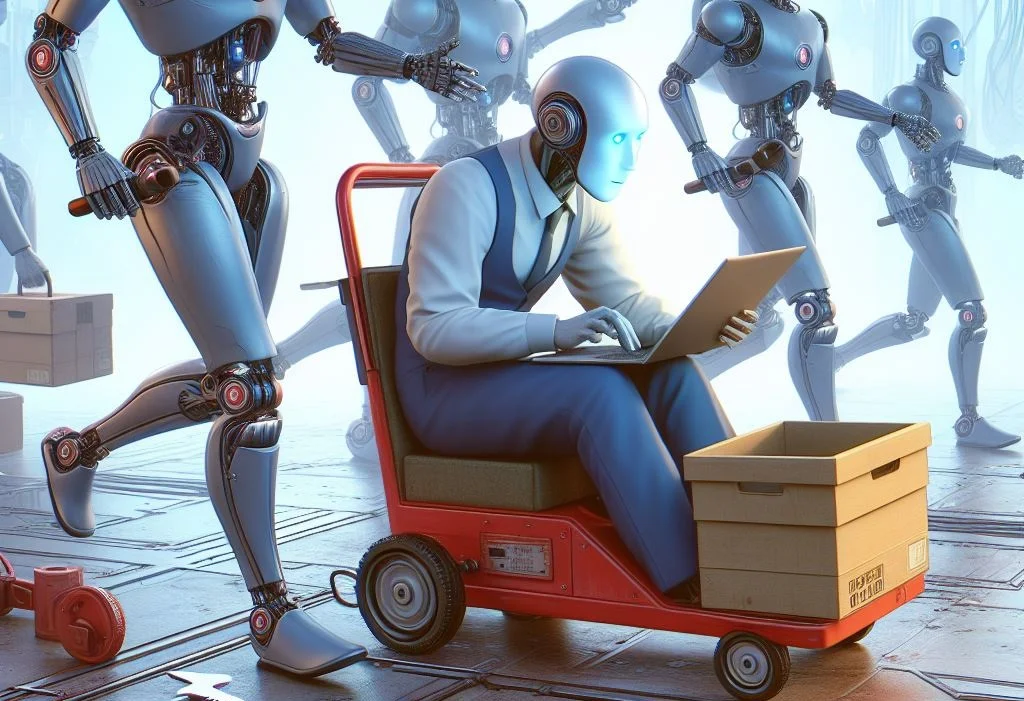There is so much focus on whether or not AI will end up replacing us that a similar but distinct question has ended up falling by the wayside. This question revolves around robots which don’t necessarily have anything to do with AI but which can nevertheless replace humans in a wide range of occupations with all things having been considered and taken into account.
Researchers at the Brookings Institution conducted a survey (recently) of over 2,000 Americans in order to ascertain how they feel. With all of that having been said and now out of the way, it is important to note that 52% of the people that responded to this survey were of the opinion that robots will be performing most jobs involving physical labor in the next 30 years.
19% stated that this is extremely likely, 33% said it was somewhat likely, and just 23% said that it wasn’t all that likely. Interestingly enough, people between the ages of 35 and 54 were the strongest believers of this sentiment. 21% of them said it was very likely, compared to just 17% of people between 18 and 34 and 18% of people aged 55 and above saying the same.
It bears mentioning that around 32% said that this should be regulated by the federal government because of the fact that this is the sort of thing that could potentially end up keeping jobs intact. However, a similar proportion, or 29% to be exact, said that they wouldn’t want any type of regulation whatsoever.
This seems to suggest that Americans are split on this particular issue, although younger individuals are more likely to want regulation. 39% of survey respondents between the ages of 18 and 34 said that they wanted regulation, compared to 31% of people between 35 and 54 and just 25% of people who were over the age of 55.
61% of people that answered questions presented to them in this survey said that they might not be comfortable working with robots. That will be a prime concern, since the level of comfort that people feel while working alongside robots will make their rise more or less likely than might have been the case otherwise based on wherever people land. 42% said that they won’t be willing to pay more than $250 for a robot, which might put a financial squeeze on the industry.
Read next: Social Media Users' Self-Perceptions Don't Align With How Others Perceive Them, Leading to Misconceptions
Researchers at the Brookings Institution conducted a survey (recently) of over 2,000 Americans in order to ascertain how they feel. With all of that having been said and now out of the way, it is important to note that 52% of the people that responded to this survey were of the opinion that robots will be performing most jobs involving physical labor in the next 30 years.
19% stated that this is extremely likely, 33% said it was somewhat likely, and just 23% said that it wasn’t all that likely. Interestingly enough, people between the ages of 35 and 54 were the strongest believers of this sentiment. 21% of them said it was very likely, compared to just 17% of people between 18 and 34 and 18% of people aged 55 and above saying the same.
It bears mentioning that around 32% said that this should be regulated by the federal government because of the fact that this is the sort of thing that could potentially end up keeping jobs intact. However, a similar proportion, or 29% to be exact, said that they wouldn’t want any type of regulation whatsoever.
This seems to suggest that Americans are split on this particular issue, although younger individuals are more likely to want regulation. 39% of survey respondents between the ages of 18 and 34 said that they wanted regulation, compared to 31% of people between 35 and 54 and just 25% of people who were over the age of 55.
61% of people that answered questions presented to them in this survey said that they might not be comfortable working with robots. That will be a prime concern, since the level of comfort that people feel while working alongside robots will make their rise more or less likely than might have been the case otherwise based on wherever people land. 42% said that they won’t be willing to pay more than $250 for a robot, which might put a financial squeeze on the industry.
Read next: Social Media Users' Self-Perceptions Don't Align With How Others Perceive Them, Leading to Misconceptions

